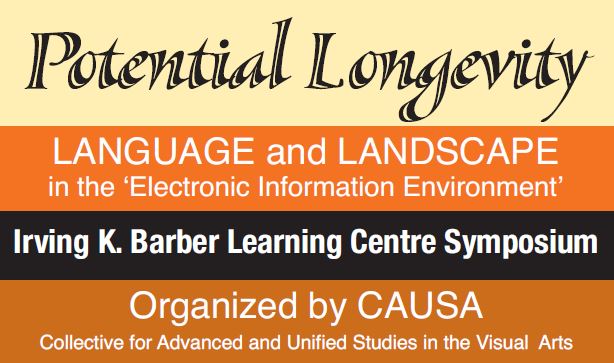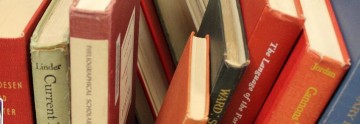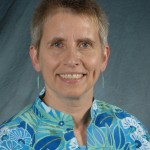Tuesday, November 5, 2014 12:00-1.00PM at the Dodson Room (Rm 302), Irving K. Barber Learning Centre.
Barbara Wildemuth – A Conversation on Mixed Methods Research, With a Focus on Why and How
Potential Longevity: Language and Landscape in the ‘Electronic Information Environment’

LANGUAGE and LANDSCAPE in the ‘Electronic Information Environment’ – November 15, 11.00am to 4.00pm at the Dodson Room (Rm 302), Irving K. Barber Learning Centre.
Morning Session, 11.00AM – 1PM
Ken Lum
Ken Lum was born in Vancouver, Canada but presently resides in Philadelphia, Pennsylvania where he is a Professor in the School of Design at the University of Pennsylvania. From 2000 to 2006 Ken Lum was head of the graduate program in studio art at the University of British Columbia, Vancouver, where he taught from 1990 until 2006. Lum joined the faculty of Bard College, Annandale-on-Hudson, in 2005 and worked there until 2007. He has been an invited professor at the École Nationale Supérieure des Beaux-Arts, Paris, the Akademie der Bildenden Kunst, Munich, California College of the Arts, San Francisco, and the China Art Academy, Hangzhou.
Lum is co-founder and founding editor of Yishu Journal of Contemporary Chinese Art. Lum was Project Manager for Okwui Enwezor’s The Short Century: Independence and Liberation Movements in Africa 1945 – 1994 (2001). He was also co-curator of the 7th Sharjah Biennial (2005), and Shanghai Modern: 1919 – 1945 (2005). Lum has exhibited widely, including São Paulo Biennial (1998), Shanghai Biennale (2000), Documenta 11 (2002), the Istanbul Biennial (2007), and the Gwangju Biennale (2008), Moscow Biennial 2011 and the Whitney Biennial 2014. He has published many essays on art. He has also realized permanent public art commissions for the cities of Vienna, Vancouver, Utrecht, Leiden, St. Moritz, Toronto and St Louis.
Lum turned to conceptual art after receiving his undergraduate degree in science. He drew a great deal as a child, but it was not until he took a course from Vancouver photo-conceptual artist Jeff Wall that the world of contemporary art, beyond traditional drawing and painting, opened up to him. He completed a Master of Fine Arts at the University of British Columbia in 1985. He believes that his lack of early formal art training enabled him to be more receptive to the influences of other conceptual artists, such as Martha Rosler and Dan Graham. Lum asserts that, by the late twentieth century, concepts rather than the artist’s technical skill were most important in creating a work of art. Like many artists of his generation, he uses mass-produced consumer materials, diminishing the boundary between “art” and “popular culture.” Lum rarely fabricates his own art but works with studio photographers and tradespeople on his projects.
Joe Wai
Born in Hong Kong and educated in Vancouver, Joe Wai’sarchitectural career has spanned 35 years and two continents. He worked with both Arthur Erickson and Thompson, Berwick and Pratt in Vancouver as well as Denys Lasdun and Partners and the Greater London Council in London, England. In 1978 he established Joe Wai Architects. His practice is focused on community development, most recently with Hynes Developments’ Seylynn Village in the District of North Vancouver, BC. Joe Wai has been involved with senior/social housing and a volunteer in Chinatown community issues for over 40 years. He is also the architect of the Dr. Sun Yat-Sen Classical Chinese Garden, the Chinatown Millennium Gate, the Chinese Cultural Centre Museum and Archives, the Chinatown Parkade and Plaza, and the Commemoration of Block 17 as well as many restorations of the early Chinatown Society buildings. One of Wai’s recent projects is the restoration of the historical Chinese Freemasons Building on the northwest corner of Pender Street at Carrall.
Terrence Russell
For roughly the past ten years, Terrence Russell’s research has focused on the ongoing process of identity definition in Taiwan in the post-martial law era, since 1987. This has been a very complex, multileveled, and politically charged engagement over who is Taiwanese and how Taiwan should understand its own history. Dr. Russell’s earliest work looked at how “nativist” intellectuals attempted to wrest cultural and political capital from the previously dominant (and colonial) Nationalist government and its supporters (mainly post-1949 émigrés from mainland China).
More recently, Russell has turned his attention to relations between the majority Minan Chinese population and the remains of the indigenous Austronesian population. By exploring various forms of cultural production, Professor Russell has looked at how indigenous populations have sought to reclaim a subjective presence in Taiwan. This involves not only challenging the hegemony of the Chinese majority in political and economic areas, but also asserting claims to social and cultural sovereignty. For example, Professor Russell has worked on the involvement of social activism networks, including Indigenous groups, in resisting attempts to remove Amis squatters from their long-established riverbank communities in northern Taiwan.
Afternoon Session – 2.00PM – 4.00PM
Ryo Sugiyama
Ryo is the Curator of Nitobe Memorial Garden. Ryo has a Masters degree in Environmental Science and Landscape Design from National Chiba University’s School of Science and Technology. While there, Ryo studied under Professor Fujii, long noted for his interest in the work of Kannosuke Mori. Mori’s masterwork includes the Nitobe Memorial Garden, completed in 1960.
David Bellman and M. Cynog Evans

Image: Ken Lum, courtesy Vancouver Biennale
This symposium is part of the KEN LUM/CAUSA: CENTRE/SURROUND art exhibition from November 1 to 30, 2014 at the Irving K. Barber Learning Centre (2nd level foyer). The exhibition highlights a collaborative interplay of ‘creative’ artist’s practice and ‘purposeful’ curatorial research. The aim of this project is at once affirmative and speculative – it points, persistently, to both a ‘future’ in the ‘past’ and the ‘contemporaneity’ of ‘classical’ Chinese culture.
This exhibition is a curatorial research initiative which addresses an expansive, cross-cultural and trans-generational theme – ‘Chinatown(s) In Motion’.
About the Artist
Ken Lum is an artist born and raised in Vancouver, BC. Lum is co-founder and founding editor of Yishu Journal of Chinese Contemporary Art. Lum has exhibited widely, including Sao Paulo Bienal (1998), Shanghai Biennale (2000), Documenta 11 (2002), Liverpool Biennial (2006), Istanbul Biennial (2007), Gwangju Biennale (2008), Moscow Biennial (2011) and the Whitney Biennial (2014). Lum is also active in public art, realizing permanent works in Vienna, St. Moritz, Edmonton, Vancouver, St Louis, Leiden, Rotterdam, Toronto, and Utrecht. He presently resides in Philadelphia, Pennsylvania where he is a Professor in the School of Design, University of Pennsylvania.
Curators
Resources
Cheinman, Ksenia. (2012) “CAUSA – Close Connections: A Bibliographic Exhibition.” Alternative Library Spaces. Retrived online on September 17, 2014 at http://alternativelibraryspaces.wordpress.com/2012/01/15/causa-close-connections-a-bibliographic-exhibition/
KEN LUM: CENTRE/SURROUND continues on display from November 1 until November 30. Exhibition space hours are 6am to 1am Monday – Sunday
Vivian Howard – Reading Practices in a Digital World: Two Case Studies

Vivian Howard
Webcast sponsored by the Irving K. Barber Learning Centre and hosted by the iSchool at UBC.
One Book, One Community (OBOC) programs represent an intersection of traditional forms of reading and reading practices with communication technologies of the twenty-first century. OBOCs aim to create community through book-related interactions. In particular, digital technologies can be used to unite geographically disparate people in ephemeral communities – i.e., people who are not necessarily local to one another – through the practice of shared reading. Begun in 2012, One Book Nova Scotia (1BNS) is organized by Libraries Nova Scotia, and is described on the program’s website as “a province-wide community reading event for adults” (1BNS.ca). The 1BNS website states that the program has four goals: 1) to encourage reading and contribute to the development of a reading culture in Nova Scotia; 2) to create opportunities for social interaction and community development; 3) to support life-long learning; 4) to allow those in the literary community to work together and develop stronger relationships. Formally programmed events have included the book announcement and launch, a series of author readings, and book discussions. Participants in 2013 were also encouraged to utilize Twitter as a mechanism for discussion and information hub for the program.
This case study analyses the success of the One Book Nova Scotia program in achieving its goals of developing a reading culture and community in the province of Nova Scotia based on the findings of a participant survey and an analysis of the Twitter discussion. The paper concludes with some recommendations to improve the effectiveness of future programs.
The second case study focuses on reading apps for preschool children. As a new technology, interactive multimedia reading apps for young children have not been the focus of much previous research and our understanding of their use is limited. The objective of this recent research project is to gauge parents’ and caregivers’ perceptions of reading apps for preschool children. This research project investigates the extent to which parents/caregivers are choosing reading apps for their children, what factors they take into consideration when choosing reading apps, and what they consider to be the benefits and drawbacks of this technology in encouraging their children to enjoy reading for pleasure.
BIO
Vivian Howard is associate professor in the School of Information Management and Associate Dean Academic of the Faculty of Management at Dalhousie University. Her research interests include barriers and motivators for pleasure reading, particularly for young readers; social reading initiatives; and Atlantic Canadian literature for children and teens. She is the editor of the YA Hotline newsletter and is the principal investigator of a research team developing the Sea Stacks website (http://seastacks.ca).
Tuesday, November 4, 2014 5:00-6.00PM at the Dodson Room (Rm 302), Irving K. Barber Learning Centre.
Archives Association of British Columbia
Webcast sponsored by the Irving K. Barber Learning Centre and event hosted by the Archives Association of British Columbia (AABC). How do you manage photographs when you cannot determine who owned them or who holds copyright over them or you don’t know anything about the content of the photograph itself. Do you have a policy or procedures or standard practices? How do you balance the issues of ownership and copyright with making them accessible for research and display? Do you digitize them anyway? Do you make them available on the Internet? I can’t wait to find out what others are doing! How about you? This interactive panel discussion engages these important questions in the archival profession today.
Select Articles and Books Available at UBC Library
Du Vernet, C. (1991). Photography and the law: Copyright, obscenity, liability, invasion of privacy. Vancouver: International Self-Counsel Press.
Hansen, H. (1996). Copyright and photography. Katalog, 8(3), 40-53.
Sherer, M. D. (1986). Copyright and photography: The question of protection. Communications and the Law, 8(6), 31-38. [Link]
Cavallo, R. M., & Kahan, S. (1976). Photography: What’s the law?. New York: Crown Publishers.
UBC Library Research Guides
The Vancouver Institute Lecture Series Presents Naomi Klein
This is an Irving K. Barber Learning Centre Lecture presented by the Vancouver Institute.
Naomi Klein is the author of the critically acclaimed #1 international bestsellers, The Shock Doctrine: The Rise of Disaster Capitalism and No Logo: Taking Aim at the Brand Bullies which have each been translated into more than 30 languages. She is a contributing editor for Harper’s Magazine, a reporter for Rolling Stone, and a syndicated columnist for The Nation and The Guardian.
Naomi Klein is a member of the board of directors for 350.org, a global grassroots movement to solve the climate crisis. Her new book is This Changes Everything: Capitalism vs. The Climate, available at UBC Library. This lecture is co-sponsored by the Canadian Centre for Policy Alternatives, 350.org and Green College and took place at the UBC Chan Centre for Performing Arts.
Available at UBC Library
Klein, Naomi. This changes everything : capitalism vs. the climate. New York: Simon & Shuster, 2014. [Link]
Klein, Naomi. The shock doctrine: The rise of disaster capitalism. Toronto: A.A. Knopf, 2007. [Link]
Klein, Naomi. No logo. Toronto: Knopf Canada, 2000. [Link]
UBC Research Guides
Your Next Step: Discovering What Employers Really Want
Webcast sponsored by the Irving K. Barber Learning Centre and hosted by alumni UBC. Your resume lists the best schools (naturally) and your experience and skills meet the requirements of the job postings you come across. Yet despite looking good on paper, your applications don’t seem to be translating into calls and interviews. So what are you missing? How can you get into the head of the people doing the hiring? What are employers really looking for? What you need to do to make employers’ shortlists. You’ll get tips on building your soft skills, as well as personal insight from actual employers about what they look for in candidates’ resumes and cover letters. This event took place October, 21, 2014, at the Roundhouse Community Centre in Vancouver, BC.
Moderator
Matt O’Grady – Editor-in-Chief, BCBusiness
Panelists
Alex Bayne – Director of Human Resources, Integrated Strategies, UBC
Lori Tse, BA’92 – Manager, Recruitment, TELUS
Heidi Vukic – Talent Consultant, People Solutions, Vancity
Agata Zasada – Talent Manager, Hootsuite
Relevant Books and Articles at UBC Library
DePrater, K. (2011). Streamlining the hiring process. Leadership, 41(2), 36. [Link]
Hiring process, while rigorous, leads to success. (2014). Investment News, 18(22). [Link]
UBC Library Research Guides
Open Access Week 2014 Keynote: Connecting the Dots: Open Access, Open Education and an Open Future Nicole Allen
Description:
We live at a time of transition between two worlds — the disconnected, analog past and the wired, digital future. Nowhere is this transition more apparent than in higher education, where cutting-edge technologies regularly mix side by side with centuries-old traditions. Openness is about overcoming barriers and paradigms of the past to unleash the transformative power of freely and fully using information in today’s world. Considerable strides have already been made toward Open Access in the realm of scholarly and scientific research, with millions of papers now available online through Open Access journals or institutional repositories, and hundreds of institutions adopting self-archiving policies. The movement for open education is following suit, expanding the use of Open Educational Resources (OER) to hundreds of thousands of students and saving tens of millions dollars on textbooks. Open Access and OER are essential building blocks for a more open future, and they are stronger together. Nicole’s talk will connect the dots between the areas of overlap and common lessons learned from the movements for Open Access and Open Educational Resources, as well as identify strategies for moving toward a more open future in higher education.
Speaker Bio.:
Nicole Allen is the Director of Open Education at the Scholarly Publishing and Academic Resources Coalition (SPARC). She also currently chairs the Steering Committee of the Open Policy Network. Her work focuses on public policy and engaging and supporting the library community. She worked for seven years at the Student Public Interest Research Groups, organizing grass roots campaigns around issues related to open educational resources. This included a cross-country tour dubbed “The Textbook Rebellion,” resulting in 3,000 university professors signing a commitment to consider adopting open textbooks. Nicole is regarded as one of the leading experts on college textbooks costs. Nicole splits her time between her home in Providence, Rhode Island and SPARC’s headquarters in Washington D.C.
Dr. Keren Dali – "The Whole of Life," or Why Teach and Study Reading in LIS Programs?
 Please join us at the iSchool for the upcoming talk, “The Whole of Life,” or Why Teach and Study Reading in LIS Programs? on Tuesday, October 21st, 2014 with Dr. Keren Dali, Assistant Professor, Faculty of Information & Media Studies, Western University.
Please join us at the iSchool for the upcoming talk, “The Whole of Life,” or Why Teach and Study Reading in LIS Programs? on Tuesday, October 21st, 2014 with Dr. Keren Dali, Assistant Professor, Faculty of Information & Media Studies, Western University.


